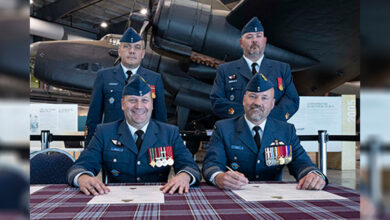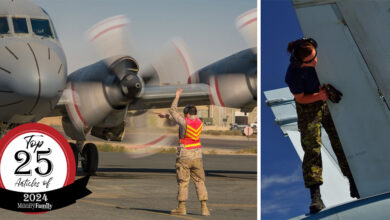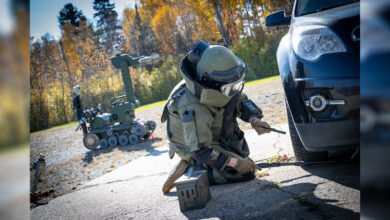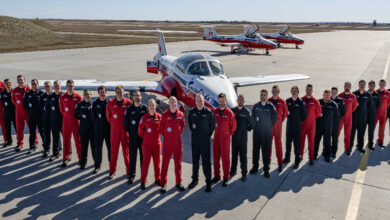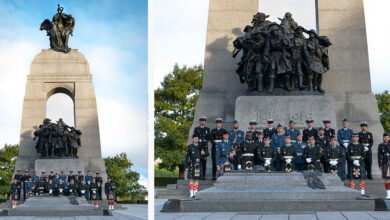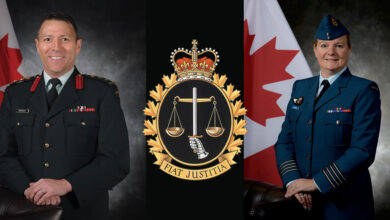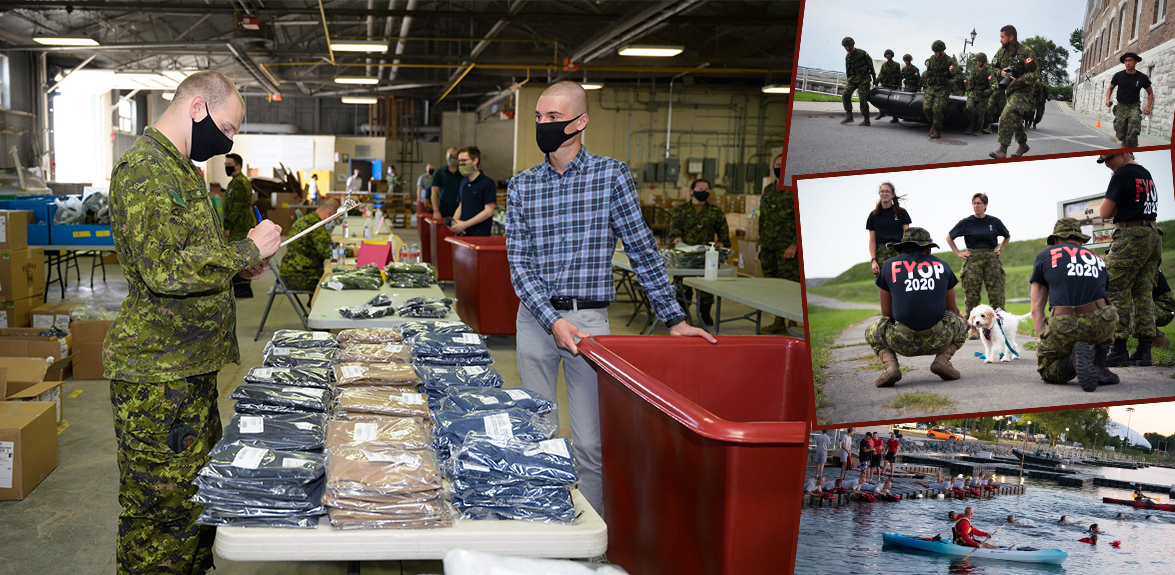
Amidst the pandemic, universities and colleges are in operation primarily online. The Royal Military College of Canada (RMC) is taking a similar, but different route while adhering to COVID-19 protocols.
Colonel Corinna Heilman, Director of Cadets RMC, says, “From an admissions perspective, our students were notified once the decision was made that it would be a remote learning environment academically. In terms of the military program that we deliver at RMC, while the delivery mechanisms have changed slightly, the content is still the same. Since students are in residence on campus, from their perspective, there isn’t significant change as first years.”
https://www.facebook.com/RMCCanadaCMR/videos/1409573172763940/
Over the long weekend in August, 223 first years arrived at RMC directly from their home. Unlike previous years, they didn’t go to the Canadian Forces Leadership and Recruit School.
RMC is still delivering three pillars: fitness, bilingualism, and military, in addition to the academic pillar. Unlike other universities, there’s still a component of RMC that is being delivered in house. The first years are still doing their academics online just like the rest of the college is doing, and very similar to what other Canadian universities are doing.
Students arrived directly at RMC as untrained Naval and Officer cadets.
“We changed the program slightly to make sure that we’re not having large gatherings of people, cadet wing wide, in any location. We’ve restricted access to the peninsula, so there’s no friends or family allowed to come on the peninsula, and until FYOP is over, all of the enabling officer cadets who live on campus are restricted to the peninsula. And cadets are not allowed to go downtown Kingston,” says Col. Heilman
“We took them through an administrative process, double-checked to make sure they weren’t showing any signs or symptoms of COVID-19, and then we put them into a period of self-isolation for 14 days. That was to make sure that both our first-year cadets and the select members of the third and fourth-year class that we brought back to assist with command and control were all healthy and able to be divided into division cohorts to begin some military training,” explained Col. Heilman.
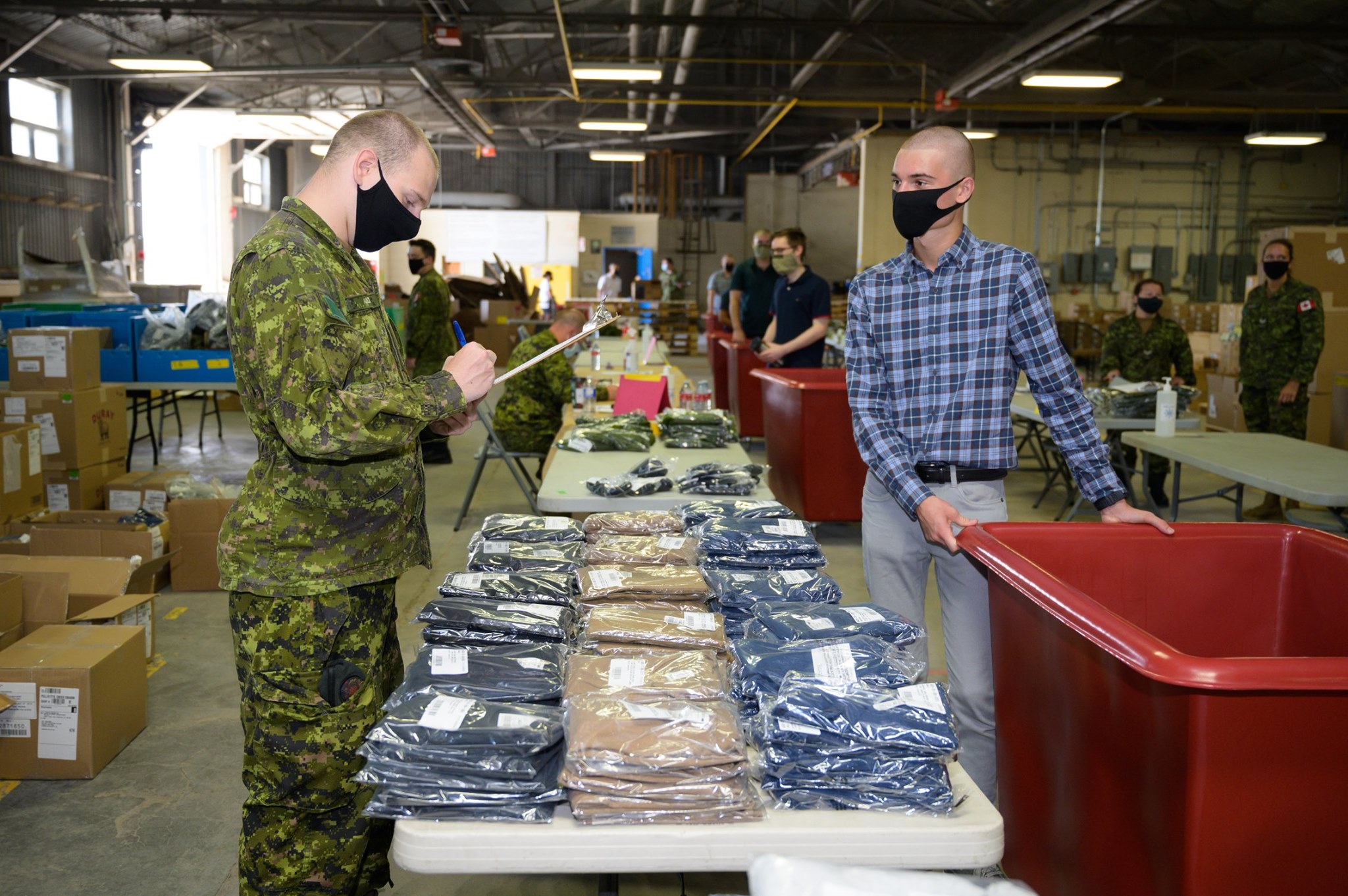
After 14 days of self-isolation, they did two weeks of the Military Indoctrination Program. The purpose behind the two weeks is to set a foundation for their future as members of the Canadian Armed Forces.
Col. Heilman says, “We set them up so that they could begin their time as members of the Canadian Armed Forces prior to figuring out what life at RMC was going to look like. Once those two weeks were done, they marched through the Memorial arch to signify their completion of the Military Indoctrination Program and signify the start of the first-year orientation program.”
Although the college is following a similar program to what they’ve done in previous years, they have had to make changes to FYOP because of COVID-19.
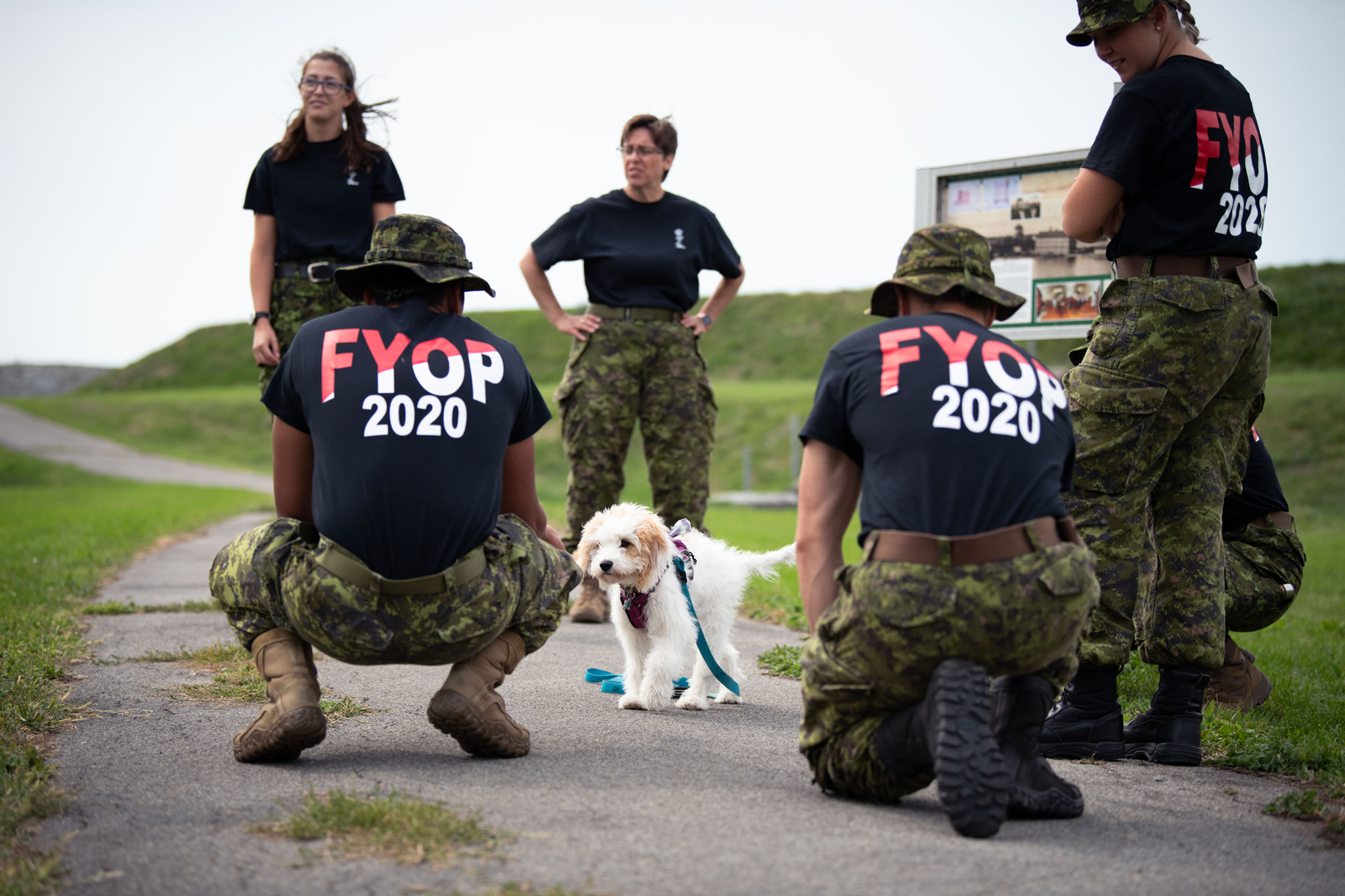
“We changed the program slightly to make sure that we’re not having large gatherings of people, cadet wing wide, in any location. We’ve restricted access to the peninsula, so there’s no friends or family allowed to come on the peninsula, and until FYOP is over, all of the enabling officer cadets who live on campus are restricted to the peninsula. And cadets are not allowed to go downtown Kingston,” says Col. Heilman.
FYOP is a traditional part of the first-year program at RMC. Typically once cadets finish at CFL, they arrive at RMC and immediately start FYOP.
RMC is trying to meet all of the milestones that they associate with FYOP, despite the alterations. Like the Wing Harrier Race, Passing Off the Square, the obstacle course, and the Badging Ceremony, traditional college activities will all still take place. However, this year there will not be any spectators in response to COVID-19.
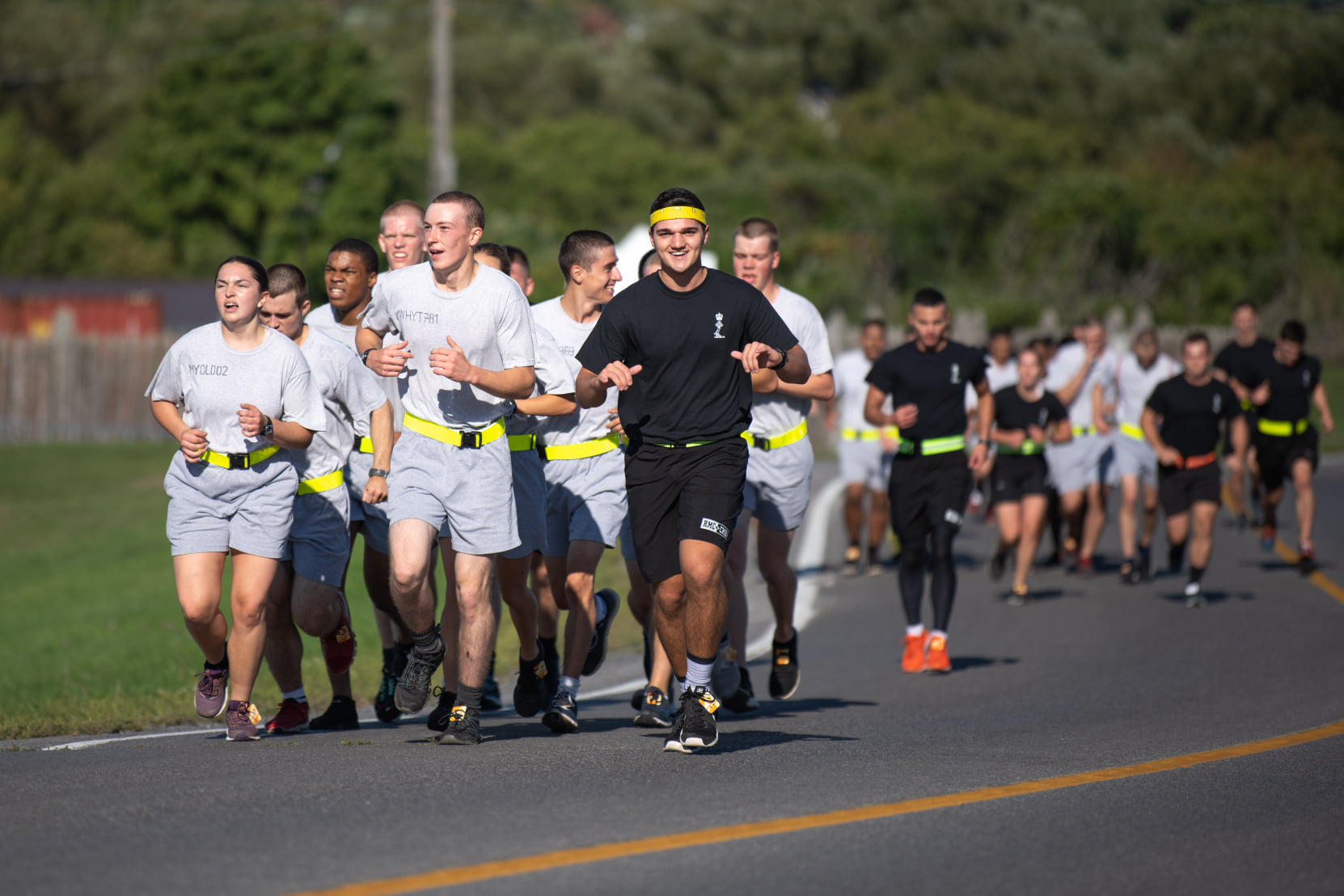
Heilman says in past years, she has put all 223 first years into Curry Hall when she needs to address them all at once. Because of the way the program is being run this year, that’s no longer possible.
She continued to explain that although the program is largely the same, it’s taking a much longer time to deliver certain elements of the program. There’s planning underway to determine what next term will look like for students and staff.
“They’re looking at that now to figure out how much of the remaining cadet wing we could bring back, and how we need to approach that to ensure that we were setting up all of our Naval and Officer cadets for success. Once we’re through that piece, we will look at fall of 2021,” says Col. Heilman.
RMC is not there yet in terms of planning. Col. Heilman suggests there are still many factors that remain to be seen in terms of provincial regulations and the transition into a new environment from a local community’s perspective.
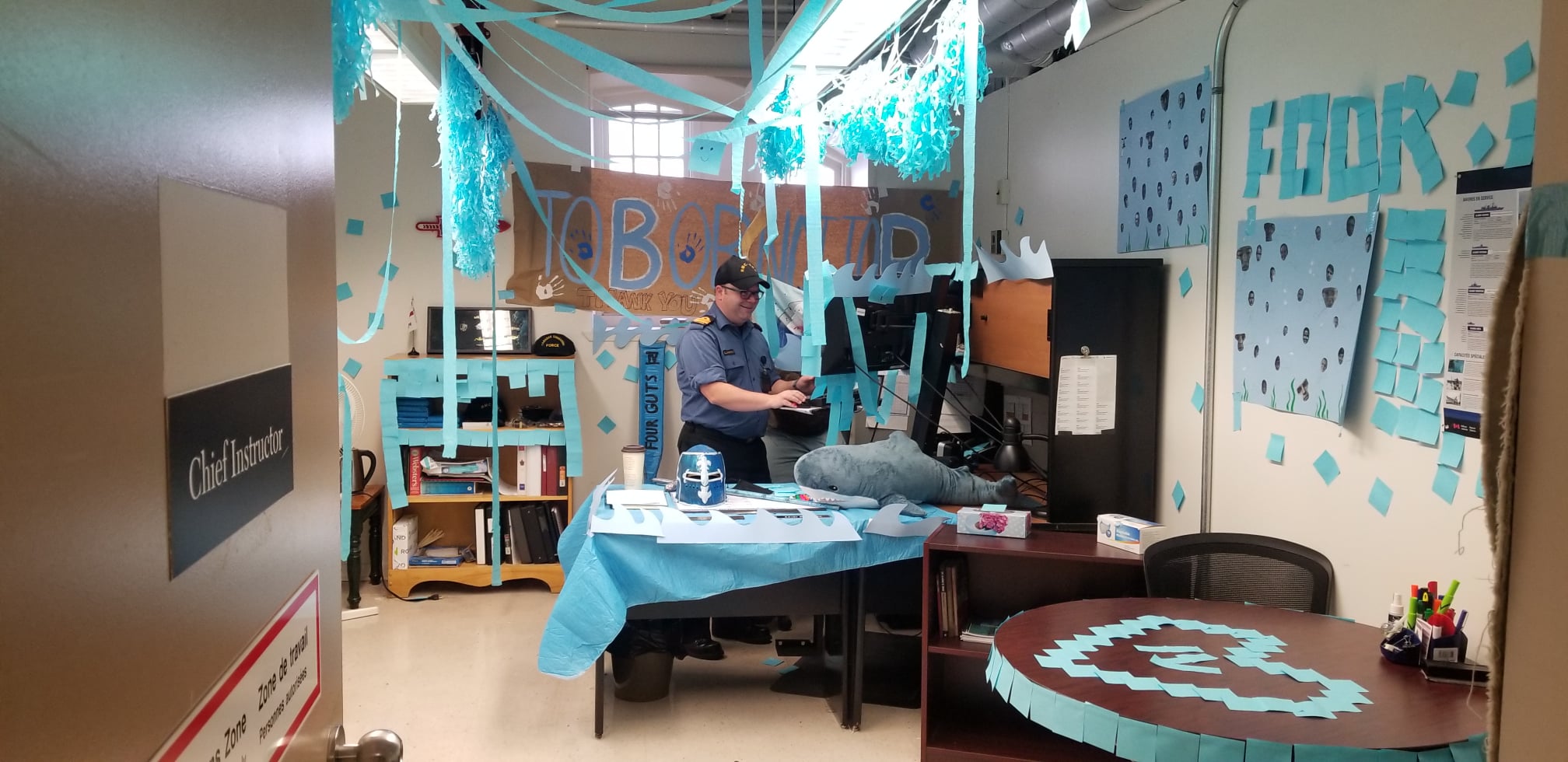
Col. Heilman says she thinks there’s always a tendency to compare one year to the next, particularly in RMCs case, as ex cadets.
“One of the things I keep emphasizing with the first years and with the senior cadets that we’ve brought back for command and control purposes is that all though this year is different, that doesn’t mean it’s any easier than it has been in the past. It also doesn’t mean it’s any harder than it’s been in the past. It’s just different,” she stated.
The first-year class is dealing with a set of pressures and stressors that no other class has had to experience in terms of starting their military careers in the middle of a global pandemic.
The third and fourth-year cadets, who were selected to come back and assist with the first-year program, are relied on for input in terms of how they think the program is going.
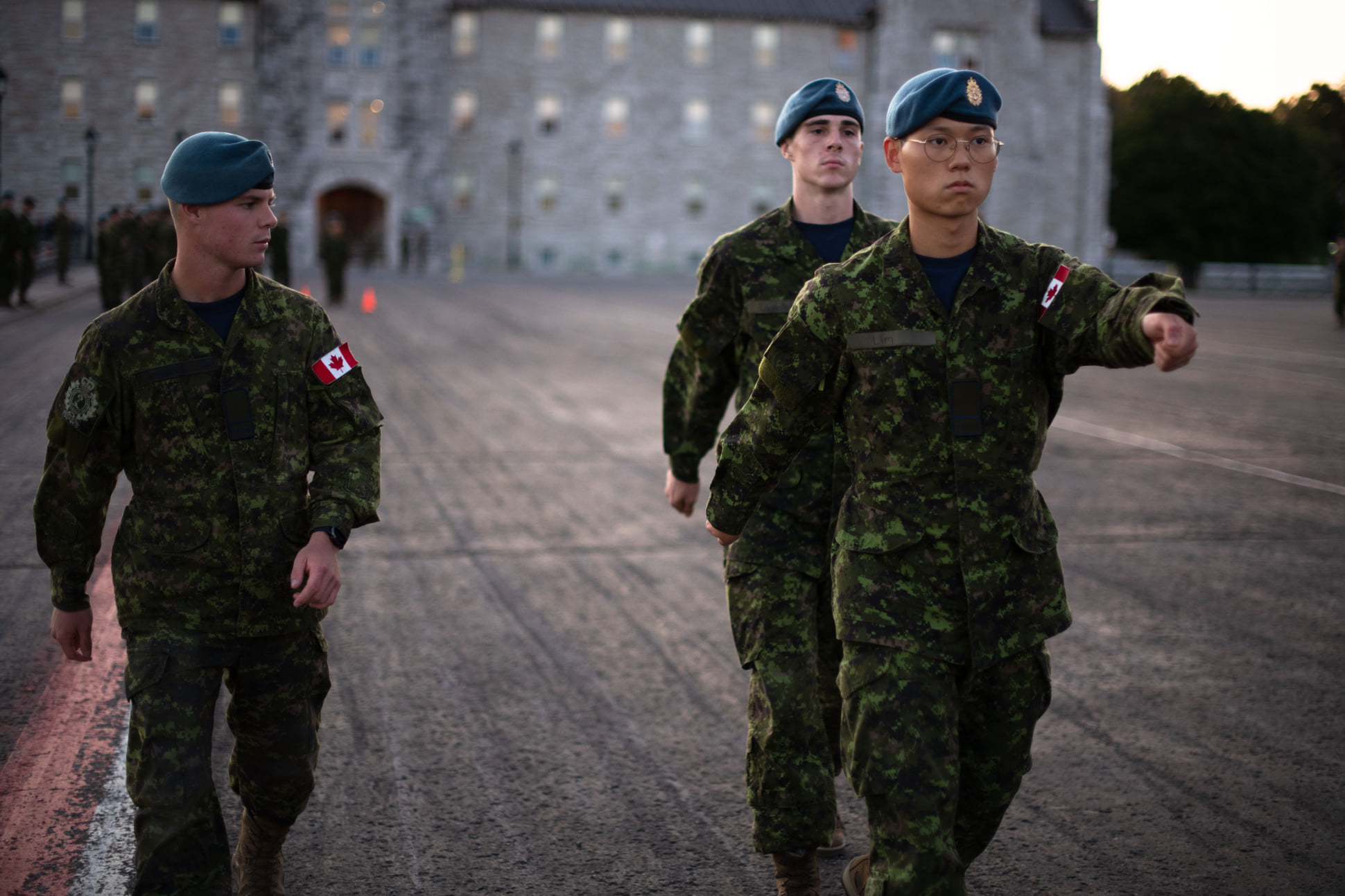
From their perspective, says Col. Heilman, they still feel that it will allow the cadets to develop as individuals and teams, begin to work together as teams, and begin exercising their leadership skills and abilities.
“I get regular feedback from parents, who have indicated that they’re pleased with the challenges that their loved ones are going through while at the same time, they’re happy to see the measures that RMC is taking from a COVID-19 perspective. So I do think that it’s well-received both by senior cadets, by the staff at the college and then by the greater RMC community as well,” Col. Heilman stated.
Follow RMC on Facebook or Twitter to keep up with the Class of 2024 Cadets.
Background image: On the Class of 2024 marched through the Memorial Arch, truly beginning their journey at the Royal Military College of Canada. This year, the traditional March through the Memorial Arch at RMC was unfortunately not open to the public. Due to COVID-19 restrictions and the importance we place on rigorously protecting the health of our first-year officer cadets, access to the peninsula remains limited to staff and personnel essential to the operation of the university.



